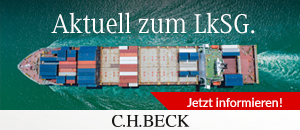TRI-TRAB: An Interview with Maria Scheibengraf
von , veröffentlicht am 18.01.2024Maria Scheibengraf is a Spanish marketing and SEO translator based in Kingston upon Thames, England, and Co-Founder and Operations Manager of Crisol Translation Services. She is also the founder of TRI-TRAB.
Winslow: Let’s start simply. What does “TRI-TRAB” stand for and what does it do?
Scheibengraf: TRI-TRAB is an acronym of Translation Industry Transparency Board. It’s a platform where language professionals (not just translators – any professional in the language sector) can report unethical or exploitative behavior by translation agencies.
Winslow: Why would anyone need to report that sort of behavior?
Scheibengraf: It’s about fostering transparency. We’re here to empower people to uncover answers that aren’t always apparent. Our platform consolidates information in a neutral, accessible manner – information that was previously scattered or accessible only through chance encounters, or if you knew the right people. And yes, it’s about exposing translation agencies, particularly the disparities between their public personas and their actual dealings with providers.
Winslow: Would you mind elaborating?
Scheibengraf: There are issues with unethical behavior, lying to clients, undermining, underpaying, and manipulating translators, restrictive NDAs and non-competes that take advantage of how translators rarely understand their limited enforceability … and that’s just the tip of the iceberg. All of that ends up with people feeling like they have to work for bad rates or accept bad treatment.
This, of course, doesn’t reflect the entire industry. There’s a large section that goes unnoticed: higher-end, high-skilled translators who work in collectives or small teams, or independent translators who work directly with end clients. We don’t tend to get discussed, which is why “the translation industry” as a concept is already flawed from the outset. So, it’s better to talk about agency behavior – how they treat clients and how they treat the translators that work for them.
What we’re trying to do is to create transparency – make it easier for translators to know what they’re getting into when considering a new agency client, and see that they’re not alone. Moreover, through SEO, search engine optimization efforts, we’re already on track to becoming visible in Google searches for the names of certain translation agencies. In other words, we strive to play a role in enlightening end clients through their own commercial investigation efforts.
Winslow: But other platforms already exist that do roughly what TRITRAB aims to do? ProZ’s Blueboard comes to mind.
Scheibengraf: Existing platforms such as ProZ’s BlueBoard, Payment Practices, among others, are indeed useful, but they have their biases. The lack of anonymity can deter people from speaking up due to potential repercussions for their careers, reputations among agencies, and social pressure. The 1-to-5-star rating system is another problem – agencies have been known to request 5-star ratings in exchange for putting freelance translators on an internal “preferred translator” database, or even providing a reference for applying to a translation association. This limits transparency and reliability.
In this sense, TRI-TRAB is unique. As the website states: “NO STAR RATINGS. This isn’t a review site – it’s a reporting tool. If your business is listed here, it’s bad news.” There’s a team of volunteers vetting each person submitting a complaint and all evidence presented. We’re enabling people to speak up in an impactful way, without fear of repercussions.
Winslow: How do unethical business practices relate to the translation agency business?
Scheibengraf: Most translation agencies use a business model that places them as one of several intermediaries in a long and complex supply chain. In this model, the translator is at the very bottom of the pyramid, with very little to no negotiating power. Larger translation agencies feel they need to keep their prices low to win contracts from end clients, so they look for ways to reduce their production costs. One of the most common ways they do this is by only hiring vendors [= translation service providers] who are willing to supply work for very low rates. This, in turn, means that these vendors – often smaller agencies – seek out ways to reduce their own production costs. Indeed, the Association of Translation Companies (ATC) recently reported that around 33% of UK-based translation agencies regularly take on work for other translation agencies.
As you can imagine, there are only so many ways to reduce your costs when you’re already working for peanuts. The most common way is by hiring under-qualified translators, or by not paying qualified translators a fair rate for their work. Anyone who deliberately starts an outsourcing business that takes advantage of information asymmetry and people’s pure desperation for work is not a good businessperson, or even a good person. They’re a predator, plain and simple.
Winslow: So, why, in your opinion, have these unethical business practices survived in this industry?
Scheibengraf: It boils down to the lack of transparency that has long characterized the sector. That’s the very gap TRI-TRAB seeks to bridge and, ultimately, resolve.
Winslow: Do these unethical business practices mirror the kinds of complaints TRI-TRAB has received to date?
Scheibengraf: Yes! Although admittedly, it’s been quite surprising to see which companies have been listed. The presented image doesn’t always reflect the reality as translators experience it. So, I’d encourage people to go have a look on the website – they might be in for a surprise.
Winslow: But where is the line between an unethical business practice and a bad business practice? Allow me to cherry-pick an example to attempt an explanation of what I mean. As of this interview, TRI-TRAB has published one complaint against WeLocalize. But the complaint does not come across as a complaint. It comes across as a gripe, even a simple gripe, about WeLocalize’s alleged bad business practices. It describes a long and complicated and unpaid onboarding process. And it highlights ineffectual communication by WeLocalize. Is the complaint that WeLocalize engages in unethical or just bad business practices? If unethical business practices, what are they exactly? If bad business practices, why is that a concern for TRI-TRAB?
Scheibengraf: While I can’t delve into specifics about individual companies in this interview, to safeguard my own carefully engineered legal protection, I can say that you’re absolutely right that the distinction between unethical and bad business practices can sometimes be subtle. Unethical practices include those that deliberately violate moral principles, typically involving deception or exploitation. Bad business practices, on the other hand, might not break any established ethical codes, but can still be detrimental to people’s wellbeing or finances, such as poor communication or inefficient processes.
However, often, what starts as bad practice can evolve into something unethical. And while not every complaint may fit the textbook definition of “unethical,” highlighting bad business practices is equally essential. The goal of TRI-TRAB, after all, is to provide a comprehensive, transparent view of the ills of the translation industry, and both unethical and bad practices affect the day-to-day lives of translators and the quality of service for end clients.
There’s nothing inherently wrong in reporting companies for bad practices, even if they don’t universally qualify as unethical. Transparency isn’t just about flagging outright malpractices; it’s also about shedding light on less-than-ideal business conditions. Both practices can impact the choices translators and clients might make when choosing whom to work with.
In a nutshell, while not everyone may agree on the ethics of certain business practices, what’s undebatable is that both unethical and bad practices have no place in a healthy translation sector. Our aim at TRI-TRAB is to shed light on these practices, providing both translators and translation buyers with access to the full spectrum of information they deserve.
Winslow: TRI-TRAB anonymizes all personal data prior to publishing a complaint. Why not encourage translators to post complaints under their real name? I mean, you’ve called out translation agencies, for instance, on LinkedIn – very publicly and very much not anonymously. Why afford translators the anonymity you deny yourself?
Scheibengraf: The dynamics are different. Social and career pressures can deter open criticism. Anonymity enables honest reporting, which is crucial in a sector where the repercussions for speaking out are all too real.
Winslow: Years ago, The New Yorker published that famous cartoon, captioned, “On the Internet, nobody knows you’re a dog”? If nobody knows you’re a dog, nobody knows you’re a translator. How can users of TRI-TRAB know that an anonymous complaint is a bona fide translator complaint? Let me put this differently: On the internet, anonymity is a double-edged sword. It can signify credibility just as it can signify incredibility.What makes TRI-TRAB’s anonymous complaints credible?
Scheibengraf: That’s a great point. To tackle this, we’ve implemented a robust verification process. When someone submits a complaint, they must provide their LinkedIn profile. Our team then diligently verifies this profile, cross-referencing it with additional personal details provided, such as their full name, email address, and website. Essentially, we’re piggybacking on LinkedIn’s own identity verification systems. This ensures that each complaint is not just a voice in the void, but a legitimate concern raised by a verified professional working in the translation sector.
Winslow: To end, I’ve followed TRI-TRAB for some time. And my understanding is that TRI-TRAB had some growing pains, as it were. Would you mind telling us about those?
Scheibengraf: Indeed, the journey to launching TRI-TRAB wasn’t without its hurdles. Funding was a major obstacle initially and the sheer scale of the undertaking has had its own impact on my mental health. It was a bit of a rocky start, to be honest. However, once we managed to secure the necessary funds through crowdfunding, things started falling into place. We navigated the complexities of legal fees, accounting, and website development to lay a solid foundation for TRI-TRAB.
The crafting of our Terms and Conditions was another major task. We brought together experts in libel, data privacy, and international law to ensure that our platform could operate effectively while steering clear of legal pitfalls. It was an intense process, with numerous calls and endless emails, but it was worth it for the robust set of T&Cs we have today. In fact – no agencies have pushed back or threatened TRI-TRAB with legal action to date.
Now, looking at where we are, it’s incredibly satisfying. TRI-TRAB is experiencing rapid growth – we’ve got a thriving community of around 1,500 users, a growing base of hundreds of subscribers signed up to receive regular newsletter updates, a steady stream of complaints coming in each month, and increasing social media engagement. It’s exciting to see how far we’ve come – I really can’t complain! (Pun intended).
Winslow: Is there a way for people to support TRI-TRAB, if they want?
Scheibengraf: People can support TRI-TRAB by donating through our GoFundMe page. TRI-TRAB’s homepage includes a link to this page too.
Hinweise zur bestehenden Moderationspraxis
Kommentar schreiben






